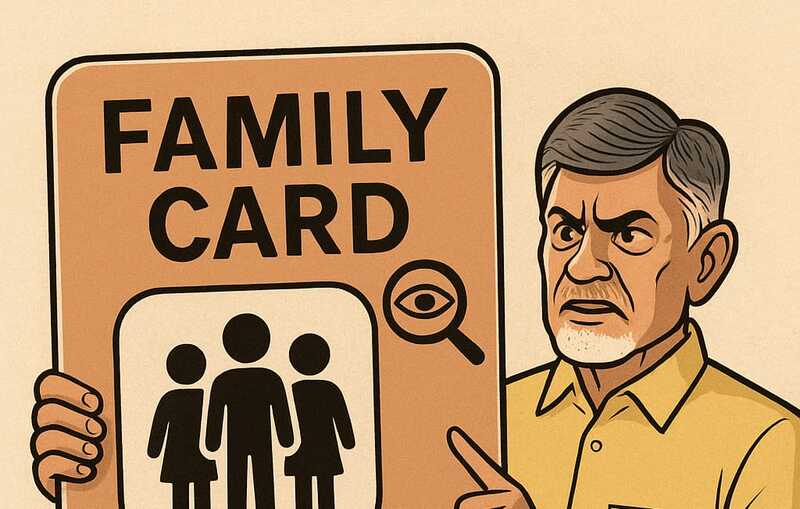Article Today, Amaravati:
The Andhra Pradesh government’s proposal to introduce family cards has triggered a political debate. Officials say the cards are meant to streamline welfare schemes. Critics argue that they are a tool for large-scale data collection that could compromise personal privacy.
Echoes of Past Surveys
During the previous YSRCP government, volunteers conducted door-to-door surveys to gather details about households, assets, and income. Opposition parties alleged that the data was later used to target voters during elections. Those concerns have resurfaced, with political analysts warning that family cards could become another instrument for electoral advantage.
Beyond Aadhaar Framework
Chief Minister N. Chandrababu Naidu has directed officials to develop family cards as an integrated system, updating household details regularly. Observers caution that this initiative could evolve into a mega-database surpassing Aadhaar in scope. In a climate of rising cyber threats, questions remain about the security and misuse of such sensitive information.
Data Privacy at Stake
The government has said that the cards will contain information about family members, income, and welfare benefits. However, it has not outlined safeguards to protect the data. Civil society groups highlight that India still lacks strong data protection mechanisms. They argue that without legal and technical safeguards, citizens’ private information could become vulnerable to political or commercial exploitation.
Political Gains in Question
Analysts point out that access to such detailed household data allows governments to identify, segment, and influence voters more effectively. While the State insists that the project is for efficient welfare delivery, the absence of transparency over data handling fuels suspicion. The administration faces the challenge of addressing these concerns to ensure public confidence in the scheme.



